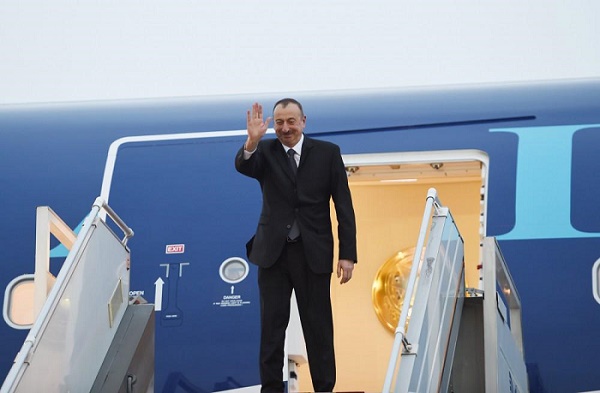Alwaght- Leading a top-ranking economic and political delegation, Azerbaijan’s President Ilham Aliyev arrived in Tehran on Sunday morning in order to hold talks with the Iranian officials.
Aliyev’s Iran visit has taken place while since past few years, the Azerbaijani government has sought tarnishing the Iranian image in the eyes of its public opinion.
A series of highlights about the accusations made by Baku officials against Tehran follows here:
- Backing the Armenian side in the Karabakh dispute.
- Supporting the Islamic movements in Azerbaijan
- Usurping the “southern Azerbaijan” and making the people there suffer from inappropriate economic, political, social, and cultural condition.
The fact is that there are firm evidences that dismiss the Azerbaijani charges against the Islamic Republic. For instance, a slew of proofs, in the form of photos and films, indicate the pro-Baku engagement of the Islamic Revolutionary Guards (IRGC) in the Karabakh conflict. The Iranian deployment came in the form of military, advisory, and training assistance. Even some of killed forces of the IRGC were buried in Azerbaijan and up to now their tombs remain there. The Baku officials later shifted to the West after cutting military cooperation with Iran, setting hope to the further Western support.
Though being familiar with the facts about the Karabakh war that was underway from 1980 through 1994, the Azerbaijani government prevents the media from telling the truth. Or even worse, it distorts the truth, trying to sell its people that Iran sided the Armenian government in the conflict in a bid to manipulate Azerbaijani people’s sentiments about the Islamic Republic. Fearing from the truth to be revealed, Baku did its best to push for cancellation of a conference on Karabakh that was scheduled to be held in Aran Studies Institute in Iran’s northwestern Tabriz province. The Iranian foreign ministry also called for the conference to be cancelled.
In a bid to reveal the truth about Iranian military support for Azerbaijan during the Karabakh conflict, Mansur Haqiqat Pur, a former IRGC commander, posted a video online showing the Iranian military commanders training the Azerbaijani military in 1995. The video essentially questioned Baku’s anti-Tehran claims. More revelations could help further enlightenment to challenge the Azerbaijani leaders' anti-Iranian promotions.
Another claim by Azerbaijan against Iran promotes the idea of the Iranian backing for Azerbaijan's Islamic movements. Azerbaijan's Islamic movements' interest in the Islamic Republic is something undoubted, and in compliance with its primary revolutionary strategies Tehran supports the moderate Islamic movements. But this does not justify the charges that claim they are operatives of Iran in Azerbaijan. The experts who closely follow Iran’s pro-movement policies can assure that even Lebanon’s Hezbollah, the closest movement to Tehran, holds its own independence voice and decision, and is by no means reliant on Iran. However, whereas the Azerbaijani leaders, who perfectly know the nature of their country’s Islamic movements' ties with Tehran, avoid admitting the truth, and persistently run anti-Iranian propaganda. The egregious point is that the more Iran in past few years exercised restraint by not reacting to the fake propagations, the firmer Baku has stepped up its tarnishing campaign against Tehran.
Still another claim by Baku leaders is in relation to Iran’s Azerbaijan province. Calling it “southern Azerbaijan”, they protest that Iran annexed the region to its territory, putting the people there under economic, cultural, political, and social repression. As for the Iranians, the claim is ridiculous and baseless, but in Azerbaijan it is accentuated by massive media propaganda. Some Azerbaijan-backed pan-Turkist voices rise while being empty-handed when it comes to providing historical proofs for their argument. Separation of Azerbaijan to north and south is historically true but claims of separation of south from north are false. The fact is that the whole of Azerbaijan was an Iranian territory and the north was split from Iran at the heels of Golestan and Turkmenchay treaties that followed a string of Russo-Iranian wars early in the 19th century. If there must be any reunion between south and north, Iran's separated lands must return to the Iranian side. Actually, it is Iran that should welcome raising the northern and southern Azerbaijan reunion issue, as Tehran holds concrete historical evidences that authorize it to call for the northern Azerbaijan to return to the original Iranian territory.



























